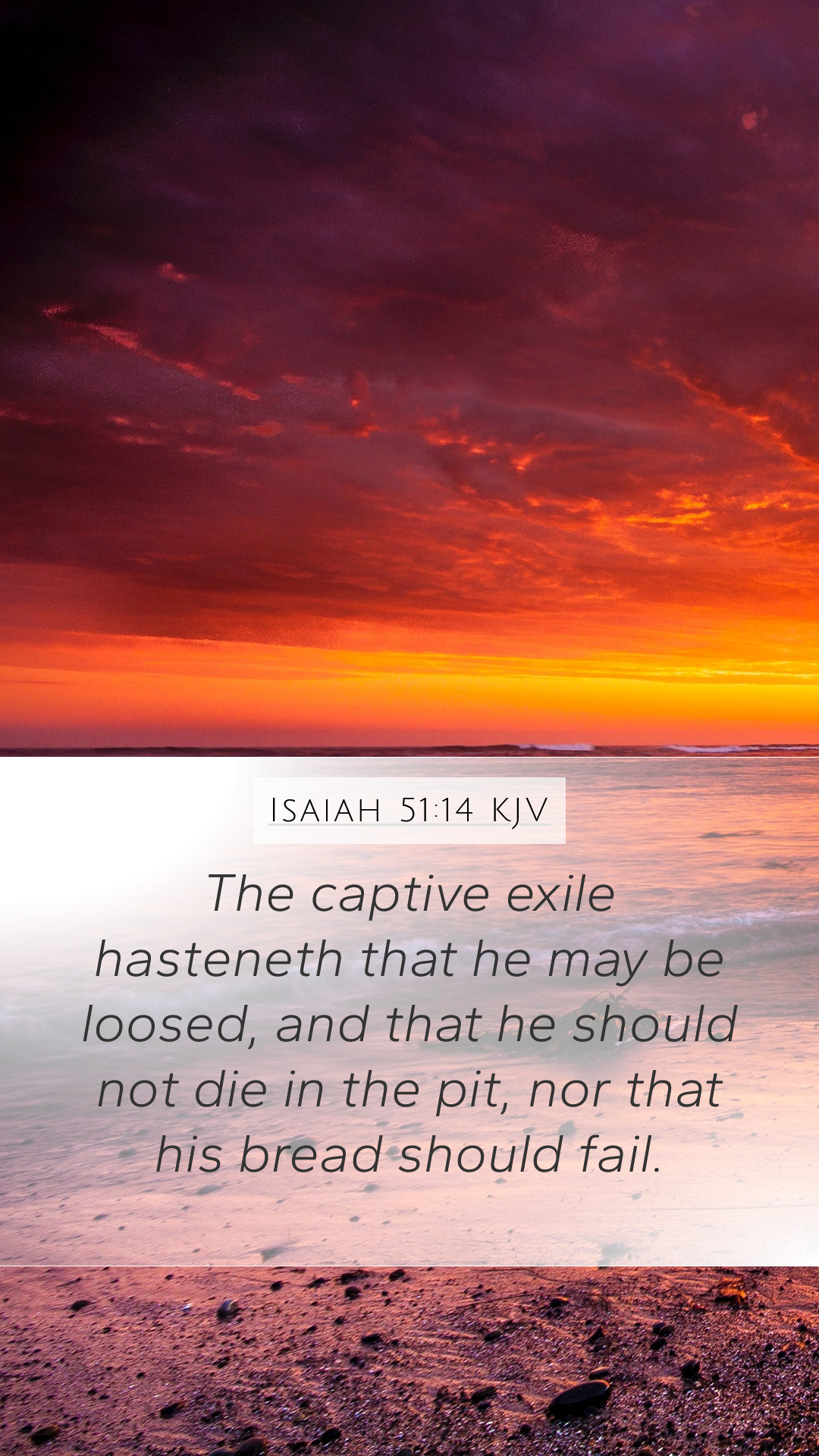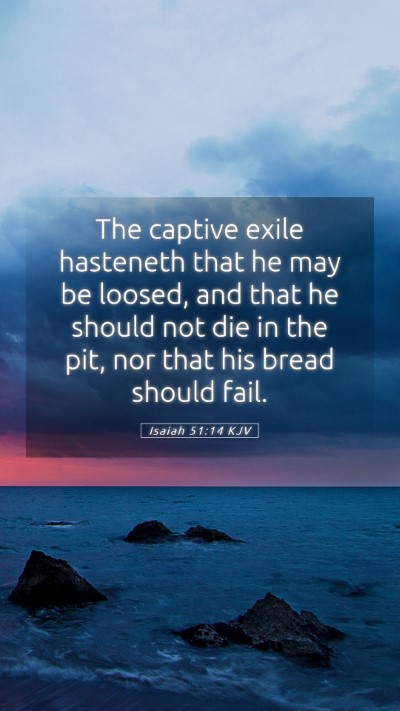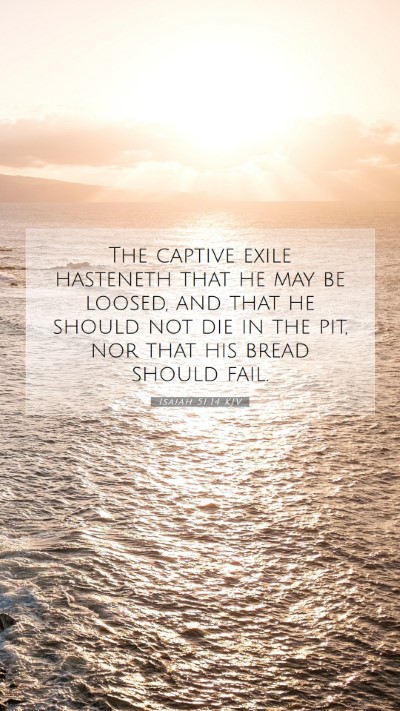Understanding Isaiah 51:14
Isaiah 51:14 states:
"The captive exile hasteth that he may be loosed, and that he should not die in the pit, nor that his bread should fail."
This verse highlights a profound theme of hope and deliverance for those in suffering—particularly in the context of Babylonian exile. Below, you will find a combined analysis and commentary on this verse, drawing from various public domain sources.
Verse Meaning
This scripture emphasizes the urgency and desire of exiles who long for freedom and sustenance. Through this, we gain an understanding of the plight of those who have been wronged, which echoes throughout the Bible.
- Matthew Henry's Commentary: Henry emphasizes the deep desperation faced by the exiles, whose hope for freedom and survival is poignantly captured in the metaphor of being in a "pit." It reflects a longing for God’s salvation and the divine intervention needed to restore life and purpose.
- Albert Barnes' Notes: Barnes elaborates on the context of captivity as a metaphor for sin and the struggles of life. He conveys that the "bread" symbolically points to spiritual sustenance and emphasizes trust in God during periods of hopelessness.
- Adam Clarke's Commentary: Clarke stresses the urgency mentioned in the verse—"hasteth." He describes this as a cry not just for physical deliverance from Babylon but also a deeper, emotional fervor for spiritual restoration and fulfillment of God's promises.
Thematic Insights
The central themes of this verse revolve around the concepts of captivity, urgency for liberation, and dependence on God for sustenance during trials.
- Hope in Despair: The captive exiles represent anyone who feels hopeless. This verse speaks to those undergoing trials, reminding them that deliverance is not only possible but imminent through God’s providence.
- Spiritual Hunger: The mention of "bread" reflects not merely physical needs; it delves into the human desire for spiritual nourishment that ultimately can only be satisfied by God.
- The Nature of Captivity: The "pit" is a metaphor for despair and entrapment. This symbolism resonates throughout Scripture, indicating the peril of sin and the need for redemption.
Application to Daily Life
In applying this verse, one might reflect on how it addresses individual experiences of feeling trapped or oppressed, whether by sin, circumstances, or societal pressures.
- Personal Reflection: Readers are encouraged to assess areas in their lives where they feel captives and seek God’s intervention.
- Bible Study Group Discussions: This verse can be used in discussions to explore God’s promises of freedom and provision, enabling deeper community support.
- Prayer and Meditation: This verse serves as a prompt for prayer, emphasizing urgent cries for help and trusting God to respond.
Cross References
This verse relates closely to several significant passages in the Bible:
- Psalm 142:7: A plea for deliverance from captivity.
- Isaiah 43:6-7: God’s promise to gather His people from the ends of the earth.
- Luke 4:18: Jesus’s proclamation of good news to the poor and freedom for the oppressed.
Conclusion
Isaiah 51:14 encapsulates biblical principles of hope and divine assurance during times of great distress. By delving into its meanings, interpretations, and applications, readers can gain a deeper understanding of this scripture as it pertains to personal faith journeys and the current spiritual climate.


